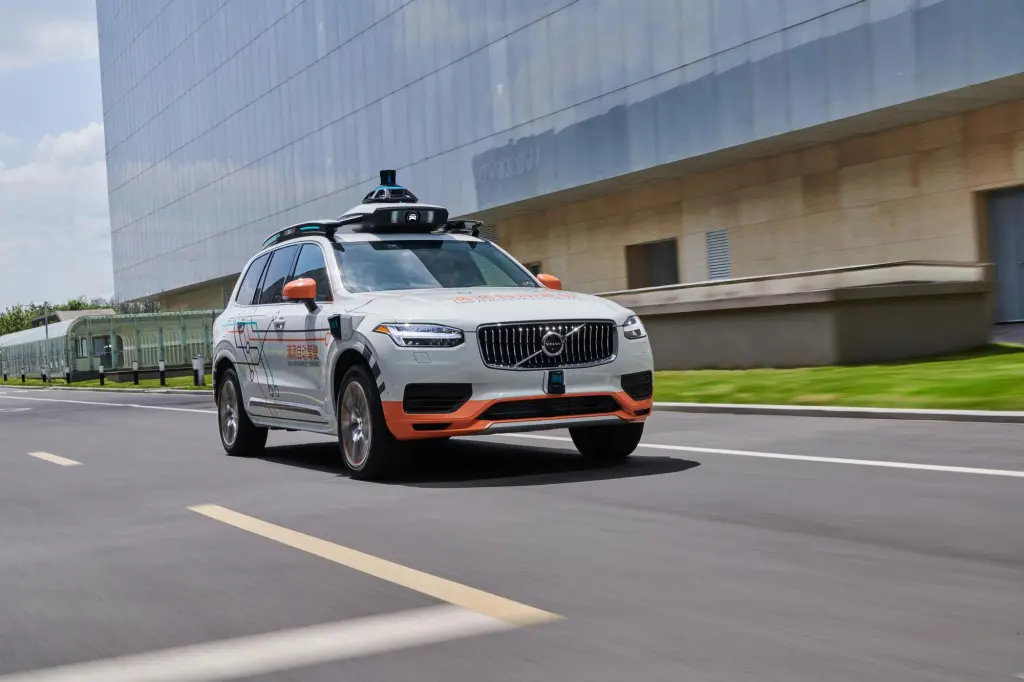
By Valerie Yurk, CQ-Roll Call
WASHINGTON — As development of autonomous vehicles continues to grow, House lawmakers are working on language for the surface transportation reauthorization bill that would promote creation of a national safety regulatory framework for self-driving cars, saying such regulation would help build public trust for the new technology.
Transportation Secretary Sean Duffy announced in April an autonomous vehicle framework aimed at making safety a priority and boosting deployment of the cars. Even so, lawmakers from both parties have said the National Highway Transportation Safety Administration has been too slow to come up with national rules for the vehicles.
Some states have developed their own AV safety regulations, but NHTSA has not put out final comprehensive safety regulations for highly and fully autonomous vehicles.
AVs “are here, it’s already happening,” Rep. Kevin Mullin, D-Calif., whose Bay Area district is a hub for AV testing, said in an interview. “Something like this really is calling out for federal regulation. I mean, we’re talking about interstate operations.”
No fully driverless, or Level 5, vehicles currently operate on U.S. roads. However, companies such as Waymo have deployed self-driving taxi services, which qualify as Level 4 AVs, in limited zones across the country, including in San Francisco.
Some automakers, such as Tesla Inc., have developed vehicle models with limited self-driving technologies, classified as Level 3 AVs. These vehicles can operate without a driver but have the technology to allow a driver to take control if necessary.
House Energy and Commerce Chairman Brett Guthrie, R-Ky., said in June his panel is writing a motor vehicle safety title for the surface transportation reauthorization bill, which House Transportation and Infrastructure Chairman Sam Graves, R-Mo., plans to introduce in the next few months. Guthrie said AV policy will be considered in that title.
“This industry is America’s largest manufacturing base supporting tens of millions of jobs across the country and serving as a major driver of exports as global competitors, especially China, seek to dominate the future of automotive innovation,” said Rep. Russ Fulcher, R-Idaho, during a June House Energy and Commerce Trade Subcommittee hearing. “Congress must examine how our regulatory structure can foster rather than hinder American leadership.”
Legislative proposals
Reps. Bob Latta, R-Ohio, and Debbie Dingell, D-Mich., who co-chair the Congressional Autonomous Vehicle Caucus, have been working on legislation to create a broader federal safety framework for highly and fully autonomous vehicles, according to a source familiar with discussions, and they hope to attach it to the transportation reauthorization bill.
It’s not clear what Latta and Dingell have in mind for safety framework legislation, although Latta has introduced bills in the past that would direct the Transportation Department to finalize AV safety certification rules and develop cybersecurity plans.
“There’s a couple of things that we need to do here really to make sure that we are advancing public trust, and one of those is making sure that the federal government is speaking to vehicle design, construction and performance issues, which only it can speak to uniformly,” said Jeff Farrah, chief executive officer of the Autonomous Vehicle Industry Association, in a June hearing. “And that’s something that’s going to be married with a lot of the great efforts that have happened in a variety of U.S. states.”
Mullin said he is working with Latta to include his bill (HR 4376) that would require AV automakers to publicly report more driving data, including data on total vehicle miles traveled, collisions and “unplanned stoppage events.”
NHTSA now requires automakers to report data only on collisions involving the vehicles.
The Autonomous Vehicle Industry Association says its members collectively have accounted for 145 million miles driven in the U.S. since the vehicles have been deployed. That number, which has not been independently verified, pales in comparison with the 340 billion miles driven annually by Californians alone, Mullin said.
“With crash data and the number of deaths and so forth, that’s reported. But we don’t have anything to compare it to,” Mullin said. “You just want people to feel confident when they’re getting into that vehicle and know that the technology has been properly tested and tracked. The goal here is not to impede the growth of the sector, but to make sure these vehicles are operating in a safe manner.”
Skeptics
Efforts to create AV safety frameworks could run into issues in the Senate, where lawmakers such as Sen. Josh Hawley, R-Mo., are considering legislation to slow deployment of the vehicles.
Hawley said in an interview earlier in September that he’s writing a bill that would slow down the rollout of the vehicles, citing concerns about safety as well as people who work in for-hire transportation jobs.
“My goal is to make sure that human drivers are able to keep their jobs, and that any AI in the driving space aids human workers, but doesn’t replace them,” he said.
Hawley didn’t provide details on what his bill would do but said he intends to “send a message” that the country should use AI to help workers be more productive, not to replace them.
Sen. Bernie Moreno, R-Ohio, a former auto dealer, dismissed the possibility of Level 5, fully driverless vehicles being deployed on the roads soon, he said in an interview last week.
“I think there needs to be a lot of great regulations around Level 1 through 4 [AVs],” he said. “That’s really, really important. But the idea that you’re gonna have a vehicle without a driver on our road … I mean, would you fly a plane with no pilots?”
“It’s just bad public policy, especially around truck drivers,” Moreno added, echoing Hawley’s concerns that the technology could come at the expense of jobs.
It’s not clear whether the Senate Commerce, Science and Transportation Committee, which has jurisdiction over NHTSA, is working on AV policy to add to the surface transportation bill. But there are concerns that congressional discussions around AVs will fall victim to similar delays that have plagued legislation aimed at regulating AI.
“I do think there’s great promise here,” Mullin said. “AI is too big to be in a partisan bucket … It’s gonna change the way the federal government works. And AVs are just one example of that … we have to be careful about this.”
©2025 CQ-Roll Call, Inc., All Rights Reserved. Visit cqrollcall.com. Distributed by Tribune Content Agency, LLC.



